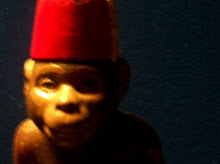On the 20th, she notes:
Two more Georgia regiments passed through today en route for Lake City. I am afraid that means a fight. God help us." Later in the day she adds "We have had a grand time but now it is over. We have had rides and walks and drives; we have had parties, picnics and serenades; we have had a merry two weeks and now our play-mates are gone. They looked so handsome and they held their heads so proudly and marched away with such steady steps. As they went they sang, 'The Girl I Left Behind Me.' Poor boys -- I hope and pray they may some day come home again.The evening of the 20th she and her family went to see a performance by Blind Tom (this is pretty damn interesting itself and I will go into it later), and the next day she writes of the battle:
Yesterday a terrible battle was fought at Ocean Pond, or Olustee, both names are used in the news sent to us of the fierce struggle between the Yankees and our troops. Many are dead on both sides and our loss would have been heavier if the Yankees had been better shots. Our soldiers are, the most of them, wounded in the head and the ground was fairly covered with small branches cut from the pines above. Those same pine trees were a great item for our men, they fought behind the trees like the Indians and like General Washington did, in his fights with the French long ago. The dispatch said "Lieut. Holland killed," so Mr. Robinson went down today with a casket to bring his body home. His wife wants him buried in Tallahassee, where she expects to make her home with her sister. The Holland family are grieving deeply, for he was the only son and brother.On the 22nd her father received word that they were to house some of the wounded: "A message from the Tallahassee hospital to father tells him to prepare to receive nine wounded men from Olustee, they will be in tonight." On the 23rd she offers a fascinating description of their wounded:
There were ten men instead of nine, but we were ready for them. Eight of them are wounded in the head, the face, or in the shoulder. One was shot in the palm of the hand, while the tenth was shot in the foot. One of his comrades, who is not hurt much, laughs at him and says he knows that fellow was standing on his head.This was her last entry for February 1864 and it would be two weeks before she would write again, but in a rather different vein, and one wonders if the "beau" might have been one of the wounded:
The one, whose hand was hurt, is just a child. He says he cannot remember his mother. His father was killed at Gettysburg and, when he heard of it and saw his father's body brought back to Macon and buried, he could stay there no longer but ran away and came to Florida, where his uncle, whom he loved next to his father, was keeping the Yankees away from Tallahassee. He will not be twelve years old until August and he is small for his age, we call him High Private Watson. We do this because he expresses a great desire to be an officer, and he will not tell his Christian name.
Only two of our patients are dangerously hurt; one, a tall man about thirty, who has a very bad wound in his head and the other is the man whose foot is shot to pieces. Both of these have fever. The others say their chief ailment was hunger and now that they have had a good breakfast they will soon be all right and ready to take a pop at the Yankees again.
We will go in tomorrow to Lieut. Holland's funeral; we have beautiful flowers to carry.
Let me tell you a secret, little Diary; "I have my second grown-up beau." I think I like the boys best, in fact, I know I like the boys best. That is because all my life I have had boy play-mates and now, that these boys look like men and are in the army, they still seem like comrades to me. They like me too; whenever one gets foolish and says silly things to me I laugh at him, and so, I do not lose my friends as I should if they were allowed to deteriorate into lovers.


